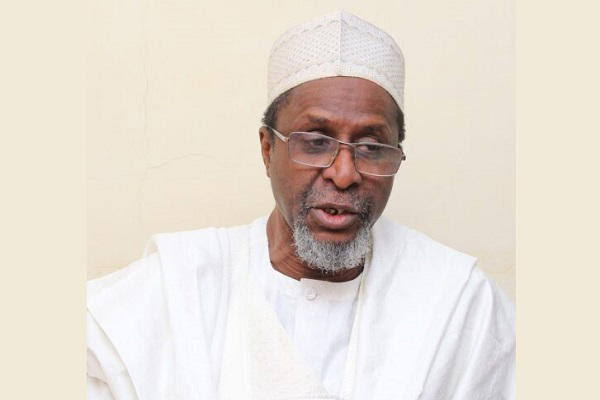653
By Tracy Moses
The Federal Government has reclaimed 1,700 hectares of oil-polluted shoreline in Ogoniland, and empowered 2,500 local youths and women with training in oil spill response strategies, the Minister of Environment, Balarabe Abbas Lawal has said.
Speaking at the 2025 Ministerial Press Briefing in Abuja on Wednesday, May 7, 2025, Lawal said the achievement was part of the Tinubu administration’s efforts to address decades of environmental degradation in the Niger Delta.
He revealed that the Hydrocarbon Pollution Remediation Project (HYPREP) is currently implementing what he described as the largest mangrove rehabilitation initiative ever undertaken globally.
He noted that the pilot phase of the mangrove restoration, covering 560 hectares, is already 85 percent completed, with over two million mangrove seedlings, spanning red, black, and white varieties, successfully planted.
“This marks the first major mangrove replanting programme in Nigeria involving diverse species,” the minister said, adding that 540 Ogoni youths and women have been engaged as part of the workforce for the initiative.
The Minister also disclosed that nine out of ten large-scale water treatment plants established under HYPREP have been completed and commissioned. These facilities now provide clean water to more than 30 Ogoni communities.
He further announced the ongoing construction of a 100-bed Ogoni Specialist Hospital, which is currently 67 percent completed, alongside a 40-bed Cottage Hospital in Buan that has reached 90 percent completion. Both facilities aim to tackle health challenges prevalent in the region.
Additionally, four hospitals in Bori, Kpite, Nchia, and Terabo have undergone significant upgrades, now equipped with modern medical technology to enhance healthcare delivery.
Lawal stated that the Environmental Health Council of Nigeria (EHCON) has so far accredited over 16,000 professionals operating in both government and private medical institutions, and has issued carbon footprint assessments to 158 facilities across the country.
He also highlighted a $2.9 million project, supported by UNIDO and the Japanese government, which saw the modernization of a plastic polyethylene production plant in Idu, Abuja.
Addressing concerns about Genetically Modified Organisms (GMOs), the minister said that 1,470 individuals have been trained in GMO testing and analysis by the National Biosafety Management Agency, as part of efforts to strengthen regulatory capacity and ensure bio-safety compliance.
In the area of forestry and climate resilience, Lawal said major afforestation campaigns are underway in the Bagga Forest Reserve and Tila in Kebbi State, as well as in Agwada (Nasarawa State) and Karara (Kogi State).
He also announced the establishment of a bamboo processing facility in Kogi State aimed at developing Nigeria’s bamboo and rattan sector in line with the government’s economic diversification agenda. Feasibility studies for similar factories are ongoing in Ogun, Cross River, Kaduna, Edo, Benue, Ekiti, and Taraba States.
He added that the Forestry Department recently received and took custody of eleven containers of semi-processed wood, which were intercepted by the Nigeria Customs Service and handed over to the ministry.
Furthermore, the ministry has introduced agroforestry projects nationwide to integrate sustainable farming practices within forest landscapes.
Other notable interventions include the Trans-African Desertification Control Initiative in partnership with the National Agency for the Great Green Wall (NAGGW), a nationwide tree planting campaign to boost reforestation, and carbon credit programs under the REDD+ scheme to promote carbon trading through forest restoration.



